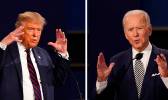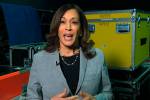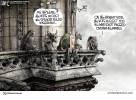Obama has better understanding of Bush
It's been said that confidence is the feeling you sometimes have before you fully understand the situation.
Candidate Barack Obama confidently said that our prison at Guantanamo would be closed and our troops would leave Afghanistan. Whether you agree with that or not, it didn't happen.
He is learning it is far more difficult to execute foreign policy as president than to simply throw out unrealistic goals to an applauding crowd during a campaign.
Say what you will about former President George W. Bush. He weighed the options, outlined the mission and carried out decisions when it came to foreign policy. He wasn't perfect, of course, but the former president explained his precise vision and the actions he took in the name of our national interest. That is underscored in his just-released book.
Contrast that with the on-again, off-again policy regarding Libya. At first our president didn't want to get involved when a popular uprising appeared on the verge of overthrowing dictator Moammar Gadhafi. Then, when Gadhafi's forces appeared poised to seize the last major city under rebel control, our European allies and Obama's own secretary of state pushed the president to impose a "no-fly" zone to protect the rebels through massive firepower that destroyed Gadhafi's air defense system.
The first day of U.S. military operations, by the way, cost taxpayers well over $100 million for missiles alone. And the president so far has not fully outlined what could be the ultimate cost of his Libyan operation to a nation drowning in debt.
Candidate Obama excoriated the Bush administration for not informing Congress when initiating the Iraq and Afghanistan operations. With regard to Libya, however, United Nations bureaucrats and foreign diplomats knew far more about our military plans than the leadership of both parties in Congress.
The Wall Street Journal's Bret Stephens writes that "since coming to office, Mr. Obama has treated foreign policy as if its central objective were to win the balance of global public opinion. And public opinion always demands a considerable degree of political deference. But that's not all public opinion demands. It also expects leadership, clarity, direction and execution. It looks for a result -- the faster the better."
The contrast with the decisive Bush is stark. Reflect on the first few days as the U.S.-led operation unfolded. One day, the president said "humanitarian concerns" dictated that Americans kill Libyans loyal to Gadhafi in order to save the lives of his opponents. The next day, he said Gadhafi should go. And then he said we were not targeting him militarily, but, yes, he "favors" regime change.
By the way, who are these Libyan rebels we are helping? Some could be apolitical tribesmen, and maybe there are some Thomas Jefferson types among them. On the other hand, perhaps there may be far more criminals, Islamic extremists and would-be dictators among them.
David Rieff, who authored the book "At the Point of a Gun: Democratic Dreams and Armed Intervention," criticizes the "messianic dream of remaking the world in either the image of American democracy or of the legal utopias of international human rights law." He wrote that, after the Iraq invasion, "Those who want America to support democratic movements and insurrections by force if necessary wherever there's a chance of them succeeding are committing the United States to endless wars of altruism. And that's folly."
Yet what really is folly involves American voters who, believing in the sweet siren song of "hope" and "change," elect someone as president who never defined what those terms meant. In fact, one could say that the more things "change" the more they stay the same. We are still in Afghanistan, still in Iraq, still keeping Guantanamo open -- get the drift?
The international pressures felt by President Obama are perhaps greater than those felt during the Bush era -- especially since he is engaged in a third war and faces mounting, unsustainable national debt. This president must ponder a haunting question similar to what President Bush faced in Iraq and Afghanistan: What if this Libyan civil war turns into a stalemate that goes on for years?
Could it be this commander in chief may now be more understanding of what his predecessor had to face in addressing fast-moving events? Could it be that, in light of the unfolding chaos of the Libyan mission, President Obama privately empathizes with George W. Bush as he ponders past and future foreign policy decisions? How ironic.
J.C. Watts (JCWatts01@jcwatts.com) is chairman of J.C. Watts Companies, a business consulting group. He is former chairman of the Republican Conference of the U.S. House, where he served as an Oklahoma representative from 1995 to 2002. He writes twice monthly for the Review-Journal.























